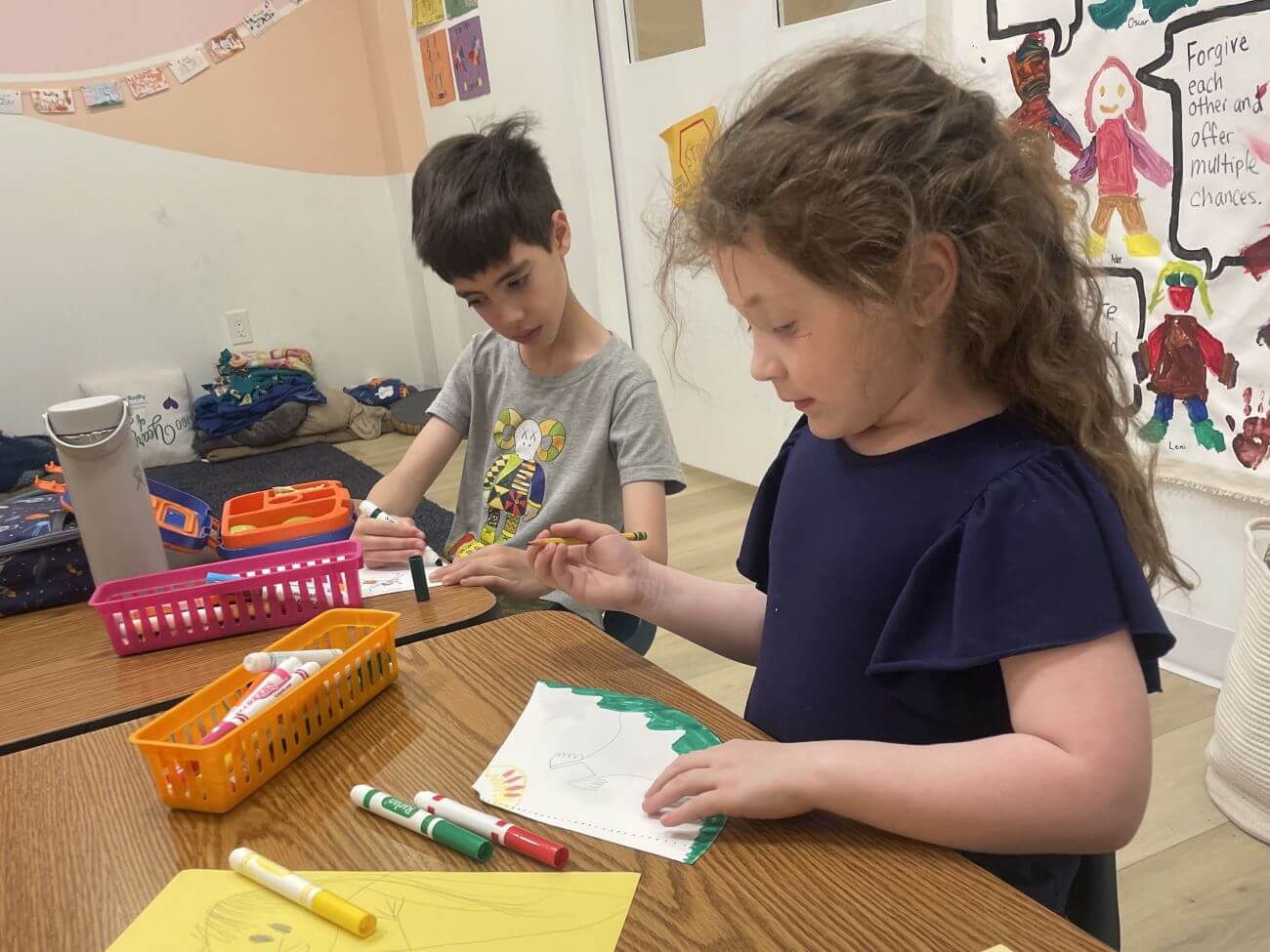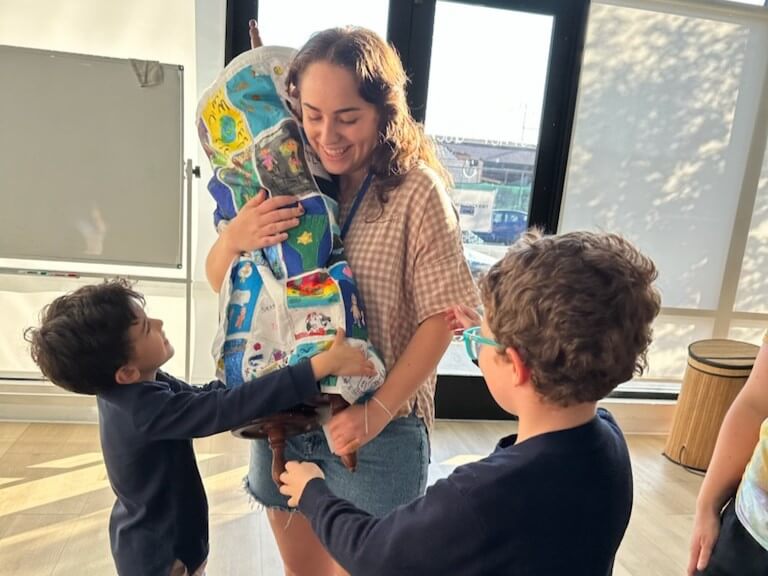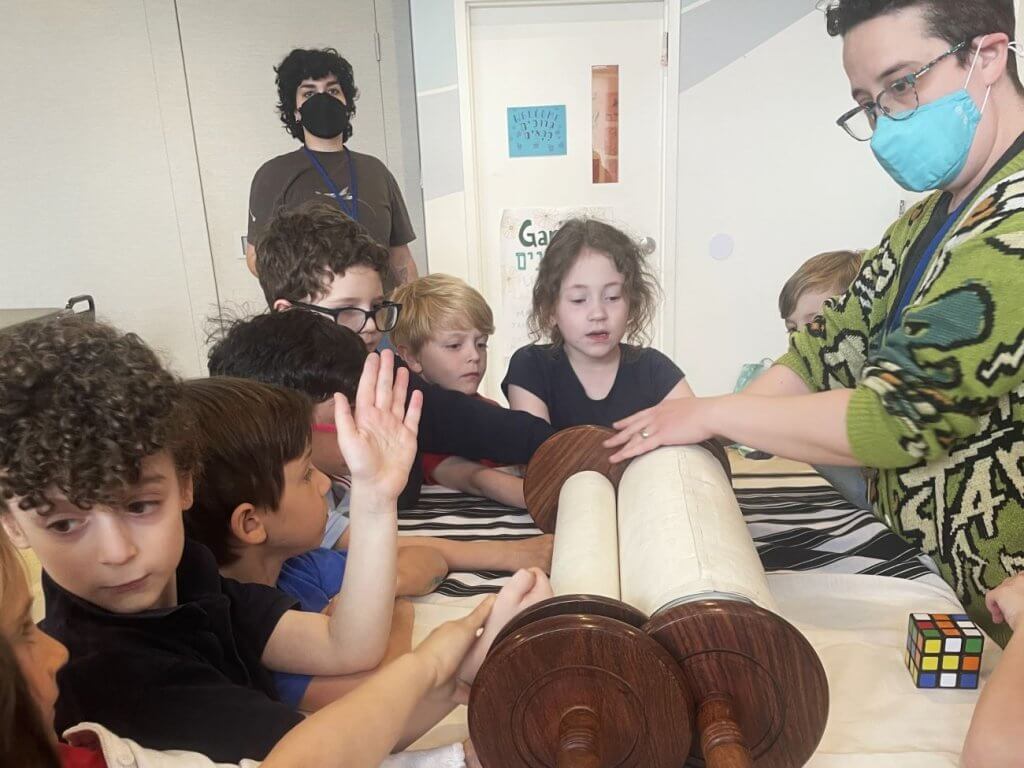
“Point to somebody who gets to come up with their own commentary about the Torah,” said Ash. The Garinim (k-1 grade) learners give us bewildered stares as Ash and I point at ourselves. Then we point at two children. Then two more. Our learners giggle as we all start pointing at each other– “You get to make commentary! And you! And you!”
We recently began a unit on women’s voices in Torah, specifically the imahot, the matriarchs, who are featured in the book of Bereshit. There is an astounding lack of canonical information about them: their hopes, their aspirations, the way they feel about their husbands. Their role in the stories as they have been told for the last three thousand years or so is primarily to be wives and mothers. We have to make up for the missing information with commentary.

This week, we made literal commentary hats out of cardstock, bearing our names and a phrase we chose to define ourselves. Highlights included “The Pokemon”, “The Food Eater”, and “The Princess”. We studied the following piece of text:
“Yitzchak pleaded with Adonai on behalf of his wife, because she was unable to become pregnant; and Adonai responded to his plea, and his wife Rivkah became pregnant.” – Bereshit 25:21
Rivkah is not able to bear children, yet Yitzchak cries out to God. Why are we not told how Rivkah feels about this?
Ellen Frankel’s The Five Books of Miriam, imagines what other women characters might have to say about Rivkah’s predicament. One learner has especially connected to this modern commentary, going so far as to state that she prefers it over Rashi. After pondering Ellen Frankel, it was time to put on our commentary hats and come up with our own theories. Learners suggested that perhaps Rivkah did not want a child or that she might have been angry at God. One learner said something particularly eye-opening: “Maybe Rivkah didn’t cry out to God because she didn’t want God to know about her struggles. She wasn’t able to have children for 20 years, so maybe she thought God would just disappoint her.”
This led us to discuss having complicated feelings surrounding God, religion, and the unequal representation of men and women in the Torah. I asked Garinim if they thought it was okay to be mad at God sometimes. One learner responded, “Of course. It’s okay to be mad at whoever you want.”

By putting on our commentary hats, we hope to model for learners that Jewish tradition is already in their own hands. Our stories are ancient and important as they are written. At the same time, Judaism is ours to practice, deconstruct, and rebuild. As we learned in a story from the Talmud during our first week of this unit, the Torah is not in Heaven; lo bashamayim hi. The Torah is for all of us. We get to ask questions, and we get to strive for, grapple with, and create answers.
